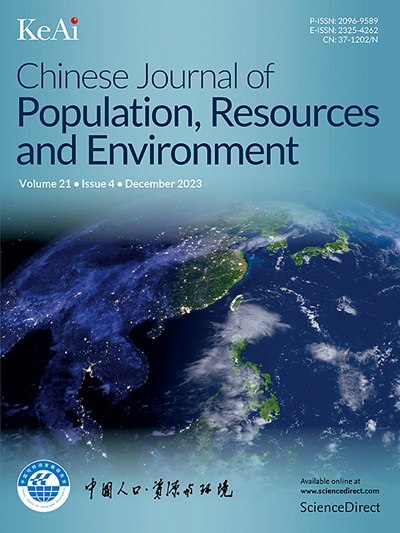Breaking down the barriers to clean air: The effects of China’s Zero-Waste City policy on PM2.5 concentration
IF 4.8
4区 环境科学与生态学
Q2 ENVIRONMENTAL STUDIES
Chinese Journal of Population Resources and Environment
Pub Date : 2025-03-01
DOI:10.1016/j.cjpre.2025.01.007
引用次数: 0
Abstract
As urbanization accelerates globally, air pollution—particularly PM2.5—is becoming an increasingly significant threat, not only to public health but also the environment. In-depth research on the impact of China’s Zero-Waste City pilot policy on PM2.5 concentration offers valuable insights into the policy’s effectiveness and provides a potential model for environmental governance worldwide. This study employs panel data from 293 Chinese cities from 2014 to 2022 to systematically analyze the impact of the Zero-Waste City policy on PM2.5 concentration using a difference-in-differences model. The findings indicate that the policy not only directly reduces PM2.5 concentration but also indirectly curbs PM2.5 emissions by enhancing green innovation and green economic efficiency. Moreover, the policy’s effects are found to be positively moderated by urban energy dependence and digital financial inclusion, while they are negatively moderated by the government debt ratio. Based on these findings, this study suggests that cities should actively develop their digital economy, reduce government debt, promote green innovation, and improve green economic efficiency, as doing so will enhance their implementation of environmental policies and promote sustainable urban development.
打破清洁空气的壁垒:中国零废弃物城市政策对PM2.5浓度的影响
随着全球城市化进程的加速,空气污染——尤其是pm2.5——不仅对公众健康,而且对环境构成了日益严重的威胁。深入研究中国零废弃物城市试点政策对PM2.5浓度的影响,为了解政策的有效性提供了有价值的见解,并为全球环境治理提供了潜在的模式。本研究采用2014 - 2022年中国293个城市的面板数据,采用差中差模型系统分析了零废物城市政策对PM2.5浓度的影响。研究结果表明,该政策不仅可以直接降低PM2.5浓度,还可以通过提高绿色创新和绿色经济效率间接抑制PM2.5排放。此外,城市能源依赖和数字普惠金融对政策的影响有正向调节作用,而政府负债率对政策的影响有负向调节作用。基于这些研究结果,本研究建议城市应积极发展数字经济,减少政府债务,推动绿色创新,提高绿色经济效率,从而提高环境政策的执行力度,促进城市可持续发展。
本文章由计算机程序翻译,如有差异,请以英文原文为准。
求助全文
约1分钟内获得全文
求助全文
来源期刊

Chinese Journal of Population Resources and Environment
ENVIRONMENTAL STUDIES-
CiteScore
4.30
自引率
1.10%
发文量
791
审稿时长
79 days
期刊介绍:
The Chinese Journal of Population, Resources and Environment (CJPRE) is a peer-reviewed international academic journal that publishes original research in the fields of economic, population, resource, and environment studies as they relate to sustainable development. The journal aims to address and evaluate theoretical frameworks, capability building initiatives, strategic goals, ethical values, empirical research, methodologies, and techniques in the field. CJPRE began publication in 1992 and is sponsored by the Chinese Society for Sustainable Development (CSSD), the Research Center for Sustainable Development of Shandong Province, the Administrative Center for China's Agenda 21 (ACCA21), and Shandong Normal University. The Chinese title of the journal was inscribed by the former Chinese leader, Mr. Deng Xiaoping. Initially focused on China's advances in sustainable development, CJPRE now also highlights global developments from both developed and developing countries.
 求助内容:
求助内容: 应助结果提醒方式:
应助结果提醒方式:


